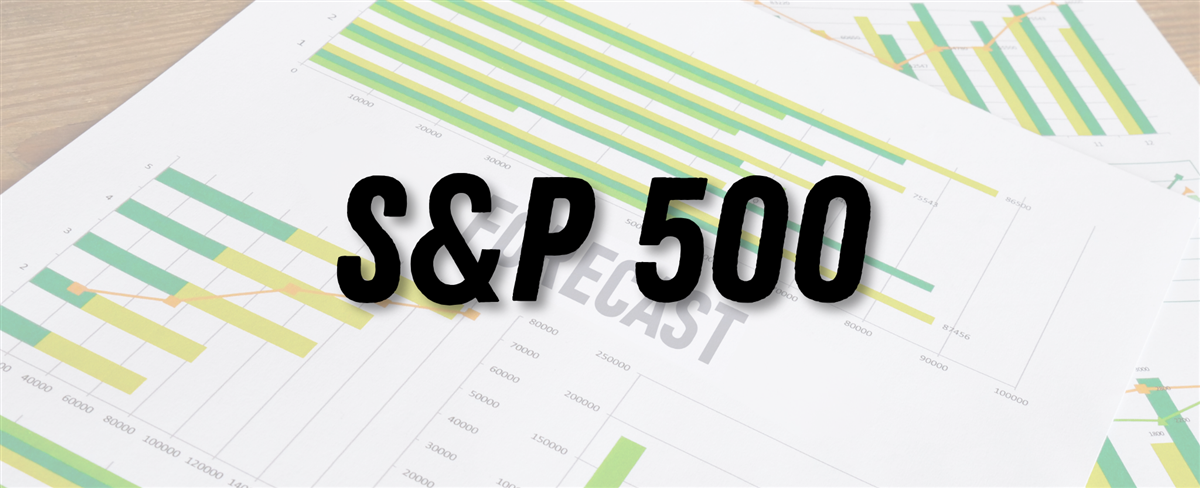
At the end of each year, a plethora of Wall Street analysts come out with their stock market projections for the next year. This includes price target projections for the all-important S&P 500 Index. These projections provide different perspectives on what level of success stock market investors might achieve in the coming 12 months. Looking at them in aggregate can help provide a balanced view.
However, one should not take these projections as gospel. Predicting mass market price movements is historically difficult. Below, I’ll summarize the S&P 500 forecasts Wall Street analysts have released. I’ll look at price targets generated through both bottom-up and top-down analysis. Lastly, I’ll reveal where the most accurate top-down forecasters of the last two years see the market going.
Digging Through FactSet’s Bottom-Up Analysis
Bottom-up analysis involves aggregating the median price targets of all stocks in the S&P 500. FactSet Research Systems (NYSE: FDS), a prominent industry data provider, has made these calculations. Using price targets as of Dec. 11, the math resulted in the S&P 500 hitting a level of 6,678 by the end of 2025. That represents a nearly 10% increase from the Dec. 11 closing price. Note that this return does not include dividends. Currently, the dividend yield of the SPDR S&P ETF Trust (NYSEARCA: SPY) is 1.2%.
The index has declined significantly as of the Dec. 18 close, driven by hawkish comments from the Federal Reserve about 2025 rate cuts. This will likely have a negative impact on these targets as analysts digest the information. At this point, members of the Federal Open Market Committee are only forecasting two rate cuts in 2025. However, this is certainly subject to change as financial conditions evolve.
FactSet’s analysis shows the healthcare, materials, and energy sectors having the largest price returns of between 16% and 20%. Meanwhile, analysts expect consumer discretionary to fall 3%, marking the largest decline.
The research highlights that while analysts underestimated the S&P 500's 2024 return by nearly 16%, they typically err on the side of overestimation. Using this bottom-up method, analysts overestimated the S&P 500 return 65% of the time over the past 20 years. On average, price targets were 7% higher than the index’s actual year-end price.
Another interesting note is the massive outperformance of the Magnificent Seven stocks in terms of earnings growth in 2024. If estimates for Q4 are accurate, Magnificent Seven stocks will have seen earnings growth of over 33%. Meanwhile, the other 493 stocks in the S&P 500 will only achieve just over 4% earnings growth. This has translated to returns. The Magnificent Seven ETF (MAGS), which is equally weighted among the seven stocks, has achieved a total return of 66% as of the Dec. 18 close. That is 2.7 times the 25% return of SPY.
Top-Down Forecasts Paint a Similar Picture
Head equity strategists at Wall Street firms often make top-down forecasts. They don’t develop price targets for individual stocks. Instead, they are in charge of developing the views of their firms when it comes to the overall equity market outlook and sector weightings. They input a variety of macroeconomic factors into a model to come up with their forecasts. This includes predictions on monetary policy, gross domestic product (GDP) growth, and employment.
The median of 17 top-down forecasts accumulated by Yahoo Finance results in a year-end S&P 500 level of 6,600. That is not too far off from the bottom-up target of 6,678. It represents a return of 8.5% from the Dec. 11 close.
What Two Top Forecasting Analysts Say About 2025
Among the 14 firms that provided top-down S&P 500 price targets for 2023 and 2024, Oppenheimer and Deutsche Bank were the most accurate. On average, their forecasts missed the S&P 500's year-end prices by 4%. Oppenheimer’s 5900 target was nearly spot on in 2024, based on the Dec. 18 close.
So, what are these two firms predicting in 2025? They’re two of the most bullish on Wall Street. Oppenheimer’s target comes in at 7,100, while Deutsche Bank has a 7,000 figure. The average of these targets implies an upside of 20% in the S&P 500 as of the Dec. 18 close. One of the most bearish forecasts comes from Stifel, implying a downside of 6%. In summary, Wall Street's S&P 500 forecasts are just that: forecasts. They offer insights and potential direction, but no one truly knows what will happen next year. What is certain is that it will be an interesting ride.
The article "Breaking Down Where Wall Street Sees the S&P 500 Going in 2025" first appeared on MarketBeat.







